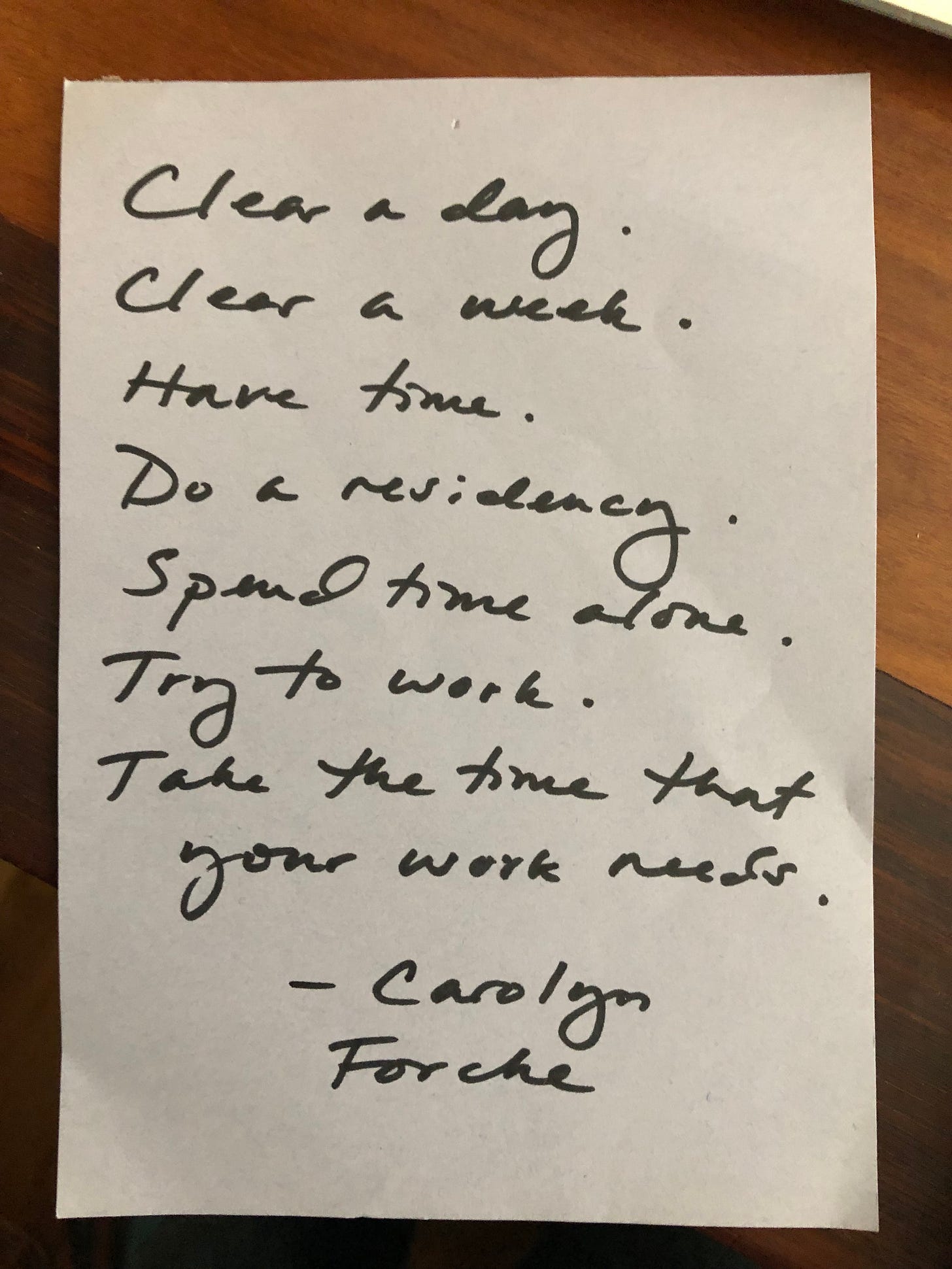I planned to write a “New Year’s Vision” post for you a few days ago, but then a massive wind snapped a power pole in our yard. Meanwhile, a spark set a blaze a couple miles from our house that turned into a grass fire that razed nearly 1,000 homes and businesses, becoming the most devastating fire in Colorado’s history. Dozens of our friends and their families lost houses. We lost power for days, and I’m told it may take a week or more for our internet to be restored.
You know what they say, “the best laid plans …” A natural disaster may be an extreme example, and yet isn’t it just the way … ? You’ve just settled down at your laptop and the dog swallows something he shouldn’t or one of your children suddenly remembers they need poster board for a project due tomorrow. Or a relative is suddenly in the hospital. Life is unpredictable, even in the best of times.
Still, we can set intentions. The poet Carolyn Forché said during a conference call last year (paraphrased):
And yet, when it comes to planning in the traditional sense—making plans to write during this or that day or week or month—I’ve learned that the overachieving mindset I’m prone to doesn’t help my writing, and it certainly doesn’t help the book development process. Having vision and just the right (looser) structures does help, however.
Clear-eyed calendaring. I know some poets who write religiously every day at the same time, and I bow to them. For me, that isn’t possible. Better for me to know when writing isn’t likely to happen. I mentally cross out most of December, May, and August when my kids are ramping up or finishing semesters and parts of June, March, and April when we usually travel. I still write during these months, I just give myself permission not to start anything new. I don’t pressure myself to finish anything, either. Same thing goes for weeks, and days of the week. I loosely block a few mornings on certain days. I often write at other times (stealing writing moments from other activities is so satisfying, isn’t it?) but having the placeholder does help.
A working title. When I’m actively writing poems toward a book, I pick a working title. It doesn’t have to be the title—it never is—just a word or two or a phrase that consistently sparks something for me. Even with just a dozen or so poems, I find themes emerging. I have an epigraph or two, as well. My working title is like a mantra, a pithy reminder, vital words that magnetize the images, ideas, feelings, and language for poems, for the book. It’s written in dark Sharpie pen on a sticky note that’s on my monitor.
Embrace desk clutter—print out hard copies. I leave print-outs of poems (or poem sequences) on my desk at all times. Even if I’m not actively working on them, having the visual reminder subtly kicks my subconscious into gear. New lines or arrangements will pop into consciousness—usually when I’m doing something entirely unrelated—because I glanced at a poem earlier that day.
Curate inspiration. Speaking of visual cues (aka clutter), I have little piles of poetry collections all around the house. I deliberately juxtapose voices. How do Tomas Tranströmer’s and Diane Seuss’s poems converse? What happens when I read Arthur Sze’s precise natural imagery and then plunge into the feelings and dense word-sounds of Terrance Hayes’s American sonnets? For me, juxtaposed inspirations propel my work.
Write in community. Last but certainly not least, I value creative community. I am a highly self-motivated person—both an asset and a trap. Having deadlines when I “owe” others work not only fuels my process, it keeps me from settling for underdeveloped writing. It has taken a lot of effort to find the right partners and to create a rhythm with them over the years, but it has been absolutely essential to completing work. I meet twice monthly with a poetry group and twice monthly with a group of fiction/non-fiction writers. And I meet monthly with a poetry mentor. Each of these serves a slightly different purpose in the development and editing and publishing process, but they all move me forward. Helping my writing companions move forward propels me forward, too.
Maybe when I have fewer responsibilities I will embrace a more traditional approach to planning—one with brightly colored time blocks and lovely writing retreats and numerical goals. But probably not.
In lieu of a traditional approach to planning, what supports your work? Which tactics move you forward? How could you be clear-eyed—and kinder to yourself—in your approach this year? Feel free to share your thoughts in the comments, or write me a note. I’d love to hear from you.
Warmly,
Radha




